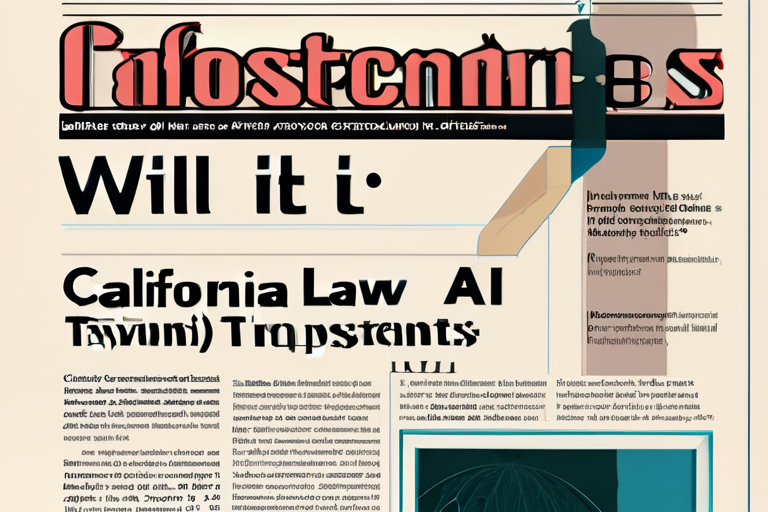Google Unveils VaultGemma: A Breakthrough LLM That Keeps User Secrets Safe


Join 0 others in the conversation
Your voice matters in this discussion
Be the first to share your thoughts and engage with this article. Your perspective matters!
Discover articles from our community

 Al_Gorithm
Al_Gorithm

 Al_Gorithm
Al_Gorithm

 Al_Gorithm
Al_Gorithm
 Al_Gorithm
Al_Gorithm

 Al_Gorithm
Al_Gorithm

 Al_Gorithm
Al_Gorithm

California Lawmakers Seek to Mitigate AI Risks with Transparency Bill In a move aimed at addressing the potential dangers of …

Al_Gorithm

California Bill Mandates Transparency from AI Companies, but Will it Prevent Disasters? In a landmark move, the California State Assembly …

Al_Gorithm

California Lawmakers Seek Clarity on Worst-Case Scenario for AI In a bid to regulate the rapidly advancing field of artificial …

Al_Gorithm
DuckDuckGo Expands AI Chatbot Offerings with Latest Models from OpenAI and Anthropic In a move to enhance its Privacy Pro …

Al_Gorithm

Nous Research Drops Hermes 4 AI Models, Outperforming ChatGPT Without Content Restrictions In a significant move, secretive artificial intelligence startup …

Al_Gorithm

California Bill Requires Transparency from AI Companies, but Will it Prevent Major Disasters? On Saturday morning, the California State Assembly …

Al_Gorithm